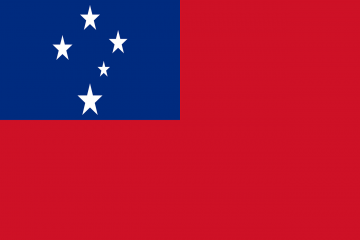Case studies on the context-appropriate implementation of an award winning open digital ecosystem including:
- Micro-credentials in New Zealand
- Course reuse for local credit in Papua New Guinea
- Branded remix of micro-course in South Africa
- Course hub and local forum integration in Canada
- Rapid digital skills development during COVID-19 pandemic in South Africa
- French localisation in support of of the UNESCO OER Recommendation from Norway and France.
Download Case Study (PDF)
The OER Foundation deploys Free and Open Source Software (FOSS) solutions from concept to completion of all OERu courses. Rather than providing learning materials via a single application Learning Management System (LMS), the Foundation has implemented a component-based approach, selecting “best-of-breed” FOSS technologies to assemble an open digital learning ecosystem.
OERu courses are authored in an open wiki (MediaWiki) which enables collaborative editing with detailed version control. Using open source scripts developed by the Foundation, a curated collection of wiki pages are published to a course web site (WordPress) utilising a responsive theme to make the content easily accessible on mobile devices.
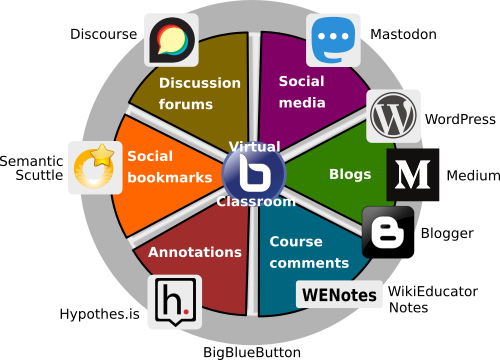 A range of open source applications are used to support learner interactions, feedback, and support including forum software (Discourse), social media (Mastodon), social bookmarking (Semantic Scuttle), web page annotations (Hypothes.is), and a local commenting feature (WEnotes).
A range of open source applications are used to support learner interactions, feedback, and support including forum software (Discourse), social media (Mastodon), social bookmarking (Semantic Scuttle), web page annotations (Hypothes.is), and a local commenting feature (WEnotes).
The Foundation developed WEnotes to aggregate interactions distributed across these technologies into a live “Twitter-like” course feed with links back to the original posts or mentions. Learners can register their preferred blog feed URLs using the Blog Feed Finder software (also developed by the Foundation) which collects links to course blog posts published using the course tag. In this way, learners can find blog posts from fellow students distributed across the web.
This open component-based approach enables a federated system, whereby multiple institutions can host and publish their own branded remixes of the course sites, while facilitating interaction between learners distributed around the world on different course sites. Using the Foundation’s freely available detailed technical specifications, institutions may select components to host themselves in the cloud or on their own infrastructure. So for example, the Commonwealth of Learning, the Ministry of Education Science and Culture in Samoa and Open Education global have all implemented their own instances of course sites.
The OER Foundation’s FOSS ecosystem has been deployed to implement a number of OER reuse and remix scenarios: the following case studies highlight six context-appropriate examples from different regions of the world.
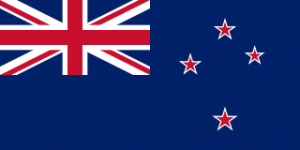
Micro-credentials plus local course adoptions at Otago Polytechnic, New Zealand
Each of OERu’s four Learning in a Digital Age (LiDA) micro-courses has been recognised for assessment through Otago Polytechnic’s micro-credentialing system. The New Zealand Qualifications Authority assessed the Learning in a Digital Age (Micro-credential) delivered by OERu to be equivalent to 16 credits (160 notional learning hours) at Level 5 on the New Zealand Qualifications Framework. In a ground-breaking example of international cooperation in support of OER, these four combined microcredentials have also been approved for credit transfer at first-year undergraduate level at OERu partner universities in the USA, Canada, and the United Kingdom.
Since July 2019, LiDA has been offered as a self-directed elective course in three of Otago Polytechnic’s undergraduate programmes. Course materials are accessed directly from the open OERu WordPress site, while a more discipline-specific assessment process has been introduced for one of the programmes via the Polytechnic’s Learning Management System. Learners may choose to interact with the open OERu tools or work within the forums in Otago Polytechnic’s Moodle instance. The new assessment alternative is itself now available for re-use and adaptation under a Creative Commons Share-Alike licence.
“Observing the widespread pandemic-initiated shift to integrated learning and teaching approaches for tertiary education, and proliferation of pandemic-informed response, review and recalibration, it is heartening to see collaborative practice in action across our network” commented Oonagh McGirr, Deputy Chief Executive at Otago Polytechnic. “We are delighted to contribute to the growth of open education in widening participation and access for all, irrespective of location or context and hope that the LiDA initiative will continue to empower learners around the world.”
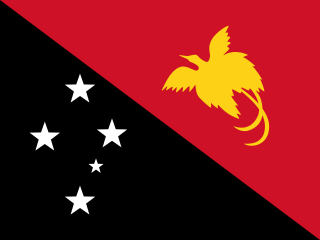
Course reuse combined with local assessment at Western Pacific University, Papua New Guinea
Western Pacific University (WPU) is a new institution in Papua New Guinea and is a member of the OERu Outreach Partnership Programme. The University aspires to be a leader in technology and innovative industries and places a strong emphasis on building digital fluencies for its learners. A unique feature of WPU is the Foundation Year Program, a compulsory program which provides the foundational academic knowledge and skills for post-secondary study for students seeking entry to the University’s Bachelor’s degree program.
WPU has adopted the OERu’s Learning in a Digital Age series of micro-courses as part of the Foundation Year Program and is committed to expanding OER-enabled courses in its curriculum. With materials published as OER using FOSS infrastructure, and since the OERu does not require learner registration to access the course materials, WPU students do not need to purchase expensive textbooks or proprietary software licenses. The first cohort of students commenced their study in 2021. Faculty members at WPU completed the LiDA micro-courses prior to the first cohort and are providing face-to-face support for students. WPU will reuse and adapt the OERu assessments (also published under open licenses) to assess their students for local credit at WPU.
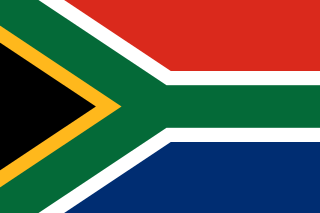
North-West University branded remix to create a micro-course for integration into local qualification, South Africa
North-West University (NWU) decided to incorporate an online micro-course for the Business Management (BMAN111) first-year level course offered through the Faculty of Economic and Management Sciences.
Without the need for NWU to incur any significant course design and development costs, NWU academics reviewed the OERu’s series of micro-courses for ‘Introduction to Entrepreneurship’ and selected a number of learning pathways from the three OERu micro-courses to publish a new NWU version called ‘Introduction to Business Management’ micro-course.
“This micro-course has transformed the way our students learn.”
~ Clarise Mostert,
Senior Lecturer, Business Management and Entrepreneurship, NWU
This remix incorporated South African video signpost examples and a NWU branded website theme for the course. Learners were required to work through the micro-course materials as self-study and to complete a quiz developed by NWU counting towards the course participation for their final grade. This customised OERu online micro-course registered 2,789 learners, with completion rates exceeding 90%. As an OERu partner, NWU also benefited from the OER Foundation’s free hosting of this online micro-course.
“Students developed critical digital skills for the 21st century through taking responsibility for their own learning and constructing knowledge from a wide variety of online sources” said Clarise Mostert.

Open Education Global course hub plus local forum integration
In a world leading example of a federated course instance, Open Education Global (OEGlobal) is collaborating with the OER Foundation to support community-based capacity development in OER. A customised copy of the outline of wiki pages used for publishing Open Education, Copyright, and Open Licensing (LiDA103) to WordPress was created for OEGlobal to enable replication of their corporate identity and customisation of any aspects of the course for their audience. The OEGlobal instance of LiDA103 is now hosted on its own WordPress multisite (at course.oerglobal.org) in parallel with the original OERu version of LiDA103 on its WordPress installation (at course.oeru.org).
Forum discussions for the OEGlobal version of the course are hosted at connect.oeglobal.org, whereas the associated OERu discussions are hosted on a different instance of Discourse at the forums.oeru.org site. The discussion interactions between learners from the two different sites will, however, be aggregated into a ‘Twitter-like’ micro-blog feed of learner comments using the OER Foundation-developed ‘WEnotes’ system, thereby encouraging communication and cooperation among learners across these different contexts. Such an innovative federated application provides another valuable example of cost effective global collaboration facilitated by the use of a FOSS-enabled open digital learning ecosystem.

Rapid digital skills development for educators during the COVID-19 pandemic at the University of South Africa
The Institute for Open and Distance Learning located within the College of Education at the University of South Africa (Unisa) led the response in digital literacy capacity development among in-service teachers during the initial COVID-19 lockdown in South Africa. These teachers were required to work in online environments without having the necessary skills to do so.
“Since there was very little time to design and develop quality online materials from scratch, we reused OER-enabled micro-courses from OERu.”
~ Prof Mpine Makow,
Commowealth of Learning Chair in OER and Open Educational Practices
Prof Mpine Makoe, the Commonwealth of Learning Chair in OER and Open Educational Practices, and her colleagues promoted OER options to address this need, reusing the OERu’s Learning in a Digital Age (LiDA) series of open online micro-courses. A custom course website theme with UNISA branding was developed, and the OER Foundation set up an outline of course wiki pages to enable integration of locally produced support videos.
Using OER “to learn how to learn on the internet” is an unfamiliar approach for many new to online learning. The UNISA facilitators encouraged staff to use mobile messaging groups to support each other in navigating the online resources, since they were already familiar with the technology. By immersing teachers in OERu’s online LiDA micro-courses, Unisa succeeded in rapidly re-skilling staff in the deployment of a range of digital technologies for teaching online during the COVID19 lockdown.
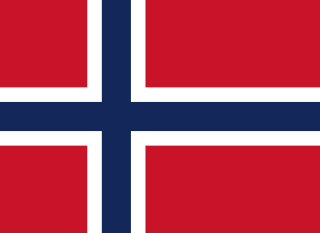

French localisation extending capacity development in support of the UNESCO OER Recommendation, Norway and France
The International Council for Open and Distance Education (ICDE) headquartered in Norway, working in partnership with UNESCO and the French Online University (L’Université Numérique) led the French translation of the OERu’s micro-course, Open education, copyright, and open licensing in a digital world (LiDA103). Specifically, L’Université Numérique in France coordinated the validation of the appropriateness of the content and cultural sensitivity of the translation.
“The Francophone working group on OER, established in partnership between ICDE, The French Ministry of Education, The French Thematic University, and virtual universities of Francophone Africa, including institutions from the Republic of Congo, Senegal, and Mali, provided a solid platform for initiating a pilot of French alternatives for capacity development” said Torunn Gjelsvik, Secretary General of ICDE.
“Our organisation has a strong track record advocating for and promoting OER development in multiple languages”
~ Torunn Gjelsvik,
Secretary General of ICDE
Using a FOSS ecosystem comprising mainstream software applications for learner interactions, the French iteration of LiDA103 was able to use the existing French localisations of the respective FOSS software user interfaces. This resulted in major efficiency gains since the OER Foundation utilised the same software installations of Discourse and Mastodon for both French and English learners without the need to duplicate software installations. Utilising a wiki authoring platform which generates the French language strings for the course-website navigation further minimised the need for additional software development. Ensuring that all videos embedded in the English version of the course were openly licensed enabled the development of French captions, which would not have been possible with more restrictive licenses.
The OER Foundation also developed a French localisation for the ‘Register Enrol’ WordPress plugin with capability to interface with the Mautic email plugin that manages campaigns for automatically sending course instructions. It is worth noting that the investment in these software localisation refinements will facilitate significantly quicker translations to other languages.
Attributions:
Coloured ink in water banner image by mystraysoul published under Pixabay license.
Country flags sourced from Wikimedia Commons in the public domain that is ineligible for copyright.

